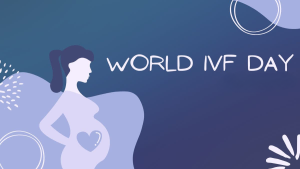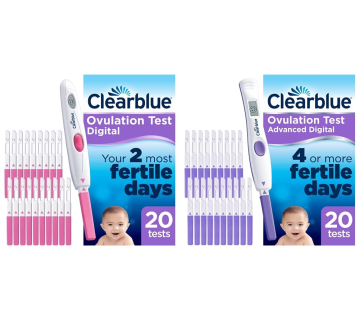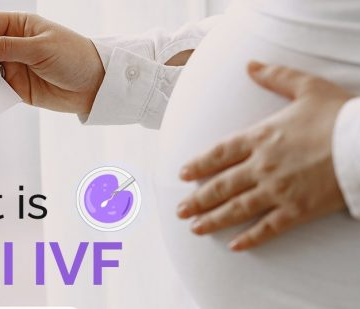
World IVF Day – Celebrating Hope, Science, and New Beginnings
Every year on July 25th, the world comes together to celebrate World IVF Day—a day that honors the incredible journey of in vitro fertilization (IVF) and the millions of families it has helped create. It’s a time to recognize the science that turns dreams into realities, the resilience of people facing infertility, and the hope that keeps them going. Whether you’re just learning about IVF, exploring it as an option, or supporting someone on this path, this article is your guide to understanding everything about IVF—its history, how it works, the latest breakthroughs, and practical tips to make the process smoother.
Let’s dive into this amazing world of possibilities, step by step, and uncover some fresh insights you won’t find everywhere else.
What Is World IVF Day All About?
World IVF Day isn’t just a random date on the calendar—it marks the birth of Louise Brown, the first baby born through IVF, on July 25, 1978. That moment changed history, proving that science could help people overcome infertility in ways no one thought possible. Today, it’s a global celebration of that milestone and a chance to raise awareness about fertility treatments.
Why It Matters
For millions of people, IVF is more than a medical procedure—it’s a lifeline. About 1 in 6 couples worldwide face infertility, according to the World Health Organization (WHO). World IVF Day shines a light on their stories, breaking the silence around infertility and showing that there’s hope. It’s also a day to thank the doctors, scientists, and families who’ve made IVF what it is today.
A Day of Connection
Beyond the science, this day brings people together. Online, you’ll see hashtags like #WorldIVFDay and #IVFJourney trending as families share their successes, struggles, and tips. It’s a reminder that no one’s alone in this—and that’s a powerful thing.
The History of IVF – How It All Began
IVF didn’t just appear out of nowhere—it’s the result of decades of grit, genius, and a little bit of luck. Let’s take a quick trip back in time to see how it started.
The Pioneers Who Changed Everything
In the 1970s, two British scientists, Dr. Robert Edwards and Dr. Patrick Steptoe, teamed up to make IVF a reality. Edwards figured out how to fertilize a human egg outside the body, while Steptoe used a tiny camera (a laparoscope) to retrieve eggs from ovaries. After years of trial and error—and plenty of skepticism from the world—they helped Lesley and John Brown welcome Louise, the first “test-tube baby.”
From Experiment to Everyday
Back then, IVF was experimental and controversial. People worried about “playing God” or creating “designer babies.” But over time, it became a trusted option. By 2025, over 8 million babies have been born through IVF worldwide, and it’s now a go-to solution for infertility.
Fun Fact
Did you know the term “test-tube baby” isn’t totally accurate? IVF happens in a petri dish, not a test tube—but the nickname stuck!
How Does IVF Work? A Step-by-Step Guide
If you’ve ever wondered what IVF actually involves, you’re not alone. It’s a process with a few key steps, and while it can sound complicated, it’s easier to understand when broken down. Here’s how it works in simple terms.
Step 1: Boosting Egg Production
First, a woman takes hormone injections for about 10-12 days to help her ovaries produce multiple eggs. Normally, you’d release just one egg a month, but IVF needs more to increase the chances of success.
✔️ Tip: Keep a journal to track how you feel—hormones can be a rollercoaster!
❌ Don’t: Skip doses; timing is everything here.
Step 2: Egg Retrieval
Once the eggs are ready, a doctor uses a thin needle guided by ultrasound to collect them from the ovaries. It’s a quick procedure (about 20 minutes), done under light sedation so it’s not too uncomfortable.
Step 3: Fertilization
In a lab, the eggs meet the sperm—either from a partner or a donor. Scientists watch as fertilization happens, creating tiny embryos. This is where the magic starts!
Step 4: Embryo Growth
The embryos grow in the lab for 3-5 days. Experts check them to pick the healthiest ones for transfer. Fun fact: some clinics now use time-lapse cameras to monitor embryos without disturbing them.
Step 5: Embryo Transfer
A doctor places one or two embryos into the uterus using a thin tube. It’s painless and takes just a few minutes. Then, you wait about two weeks to see if it worked—cue the nervous excitement!
Step 6: The Pregnancy Test
After the “two-week wait,” a blood test checks for pregnancy. If it’s positive, congratulations—you’re on your way!
Who Can Benefit from IVF?
IVF isn’t just for one type of person—it’s a tool for all kinds of situations. Here’s who might turn to it:
-
- Couples with Infertility: Blocked tubes, low sperm count, or unexplained issues can all make IVF a great option.
-
- Single Parents: Using donor sperm or eggs, singles can build families too.
-
- LGBTQ+ Families: Same-sex couples often use IVF with donors or surrogates.
-
- Older Adults: Women over 35 might use IVF to boost their chances as egg quality drops with age.
-
- Genetic Concerns: IVF can screen embryos for conditions like cystic fibrosis.
Real-Life Example
Take Sarah, a 38-year-old teacher who’d been trying to conceive for years. After discovering her fallopian tubes were blocked, she tried IVF. Two cycles later, she welcomed twins—proof that IVF can work wonders.
What Makes IVF Success Rates Tick?
Success isn’t guaranteed with IVF, but certain factors play a big role. Let’s break it down with the latest data and some insider tips.
Key Factors
-
- Age: Younger women (under 35) have higher success rates—around 40% per cycle, says the CDC. Over 40, it drops to about 10-15%.
-
- Egg Quality: Fresh eggs often work better than frozen ones, though freezing tech is improving fast.
-
- Lifestyle: Smoking, stress, and weight can all impact outcomes.
-
- Clinic Expertise: A top-notch team can make a huge difference.
2025 Success Stats
According to the Society for Assisted Reproductive Technology (SART), here’s how success rates look today:
| Age Group | Live Birth Rate per Cycle |
|---|---|
| Under 35 | 41% |
| 35-37 | 31% |
| 38-40 | 22% |
| Over 40 | 11% |
Expert Insight
Dr. Orion Nightingale, a fertility specialist, says, “Age is the biggest predictor, but don’t underestimate lifestyle. A healthy body gives embryos a better shot.”
The Emotional Side of IVF – What No One Tells You
IVF isn’t just about science—it’s a deeply personal journey. Let’s talk about the feelings that come with it and how to cope.
The Highs and Lows
-
- Hope: Each step feels like a fresh start.
-
- Fear: What if it doesn’t work? The uncertainty can be tough.
-
- Joy: A positive test is pure magic.
Coping Tips
-
- Build a Support Squad: Friends, family, or online groups (like #IVFWarriors on X) can lift you up.
-
- Take Breaks: If it’s overwhelming, pause between cycles—your mental health matters.
-
- Celebrate Small Wins: Even a good embryo is progress.
A Hidden Struggle
One thing you won’t find in many articles? The guilt some feel when IVF works for others but not them. It’s normal, but it’s not your fault—biology is tricky.
Latest IVF Breakthroughs You Need to Know
Science doesn’t stand still, and IVF is evolving fast. Here’s what’s new in 2025—and how it could help you.
AI in IVF
Artificial intelligence is now picking the best embryos by analyzing growth patterns. A 2024 study in Nature Medicine found AI boosts success rates by up to 15% compared to human selection alone.
Genetic Screening 2.0
Preimplantation Genetic Testing (PGT) now catches more conditions with less risk to embryos. It’s a game-changer for families worried about inherited diseases.
Ovarian Rejuvenation
Researchers are testing ways to “wake up” dormant eggs in older women using platelet-rich plasma (PRP). Early trials show promise, but it’s not mainstream yet.
Expert Take
Dr. Ophelia, a reproductive endocrinologist, notes, “AI and genetic tools are making IVF smarter and safer. We’re not just guessing anymore—we’re targeting success.”
Practical IVF Tips – Your Roadmap to Success
Ready to start IVF? Here’s how to prep like a pro and boost your odds.
Before You Begin
✔️ Research Clinics: Look at success rates on SART.org, but also read reviews— bedside manner counts.
✔️ Ask Questions: How many cycles do they recommend? What’s their freezing tech like?
❌ Don’t Rush: Take time to find the right team.
During Treatment
-
- Eat Smart: Load up on veggies, lean protein, and healthy fats—think Mediterranean diet.
-
- Sleep Well: Aim for 7-9 hours; it helps hormone balance.
-
- Stay Calm: Try yoga or meditation—stress can mess with implantation.
After Transfer
✔️ Rest (But Not Too Much): Take it easy for a day, then move normally—bed rest isn’t proven to help.
❌ Don’t Test Early: Home tests can give false results before the official check.
IVF Costs – What to Expect and How to Save
IVF isn’t cheap, but understanding the numbers can help you plan. Here’s the breakdown.
Average Costs in 2025
-
- One Cycle: $12,000-$15,000 (meds extra, about $3,000-$5,000)
-
- Genetic Testing: $2,000-$4,000
-
- Freezing Embryos: $1,000-$2,000 upfront, plus $500/year storage
Money-Saving Hacks
-
- Insurance Check: Some states (like New York) mandate coverage—see what yours offers.
-
- Grants: Groups like Baby Quest Foundation offer help.
-
- Shared Risk Programs: Pay upfront for multiple cycles; get a refund if it fails.
Myths About IVF – Let’s Clear the Air
There’s a lot of noise out there about IVF. Let’s bust some common myths with facts.
Myth 1: IVF Always Means Twins
Truth: Single transfers are now the norm to avoid risks—multiples only happen about 15% of the time.
Myth 2: It’s Only for Women
Truth: Male infertility (like low sperm count) is a factor in 40% of cases. IVF helps both partners.
Myth 3: IVF Babies Are “Different”
Truth: Studies show IVF kids are just as healthy as naturally conceived ones.
IVF Around the World – A Global Perspective
IVF isn’t the same everywhere—culture, laws, and access vary. Here’s a peek at how it looks globally.
Top IVF Countries
-
- Denmark: Highest IVF use per capita—great public funding.
-
- Japan: Cutting-edge tech, but strict rules on donors.
-
- India: Affordable options, growing fast.
Unique Challenges
In some places, like parts of Africa, cost and stigma limit access. In others, like the U.S., it’s about navigating a patchwork of insurance.
The Future of IVF – What’s Next?
What’s on the horizon for IVF? Let’s dream big with the latest clues.
Lab-Grown Eggs and Sperm
Scientists are working on creating eggs and sperm from skin cells. A 2024 breakthrough in mice hints this could help people with no viable gametes someday.
Uterine Transplants
For women without a uterus, transplants are becoming more common—some have even carried IVF babies to term.
Expert Prediction
Dr. Caspian Sterling, an IVF innovator, says, “In 10 years, we might personalize IVF so precisely that success rates double. The future is bright.”
Your IVF Journey – How to Get Started
Thinking about IVF? Here’s your action plan to kick things off.
Step 1: Talk to Your Doctor
Start with a regular OB-GYN for basic tests—hormone levels, sperm analysis, etc.
Step 2: Find a Specialist
Look for a reproductive endocrinologist with a track record you trust.
Step 3: Make a Plan
Discuss timelines, costs, and expectations—write it all down so you’re clear.
Let’s Talk About It – Join the Conversation
World IVF Day is all about community. What’s your story? Have you tried IVF, or are you curious about it? Drop your thoughts below—whether it’s a question, a tip, or just a hello. Let’s keep the hope alive together!


